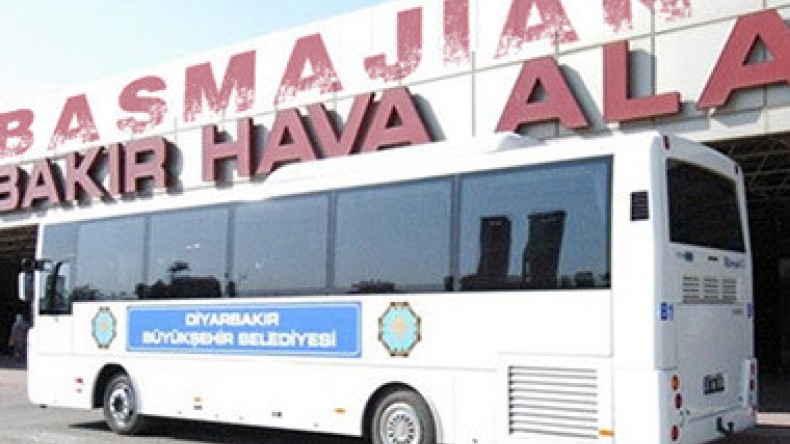
Zuart Sudjian sues Turkey to reclaim her family lands — Diyarbakir Airport
By Harut Sassounian
Publisher, The California Courier
TheCaliforniaCourier.com
Armenians are in the process of organizing thousands of events all over the world to commemorate the Centennial of the Armenian Genocide.
These events aim to remind the world about the mass atrocities committed by Ottoman Turkey from 1915 to 1923 with the expectation that the international community would compel the Turkish government to face its sordid past and restore the rights of genocide descendants.
There is, however, a faster and more efficient way — legal action — to accomplish this honorable objective. In recent years, several Armenian-American lawyers have filed class action lawsuits with some success against insurance companies in US Federal Courts. Various other lawsuits are still pending.
On the eve of the Centennial, both the Armenian government and some Diaspora groups are considering the possibility of filing lawsuits against Turkey in international courts. However, such serious legal action should only be undertaken by international law experts and not by well-meaning Armenian individuals or community groups. If mishandled, these lawsuits could have a lasting devastating effect on legitimate Armenian demands from Turkey.
Last September, His Holiness Catholicos Aram I of the Great House of Cilicia announced that he was planning to file a lawsuit in Turkey to reclaim church properties owned by the Catholicosate in Sis, Cilicia, prior to the Genocide. Should the Turkish court reject this lawsuit, the Catholicosate of Cilicia would then appeal the ruling to the European Court of Human Rights (ECHR).
Recently, the Turkish press reported that Armenian-American Zuart Sudjian had filed a lawsuit reclaiming the land that had belonged to her mother’s family — the Basmajians — on which Diyarbakir Airport is located.
I spoke with the 94-year-old Mrs. Sudjian in New York (not in California as reported by the Turkish press), who told me that after being forced to leave Diyarbakir following the Armenian Genocide, her family first moved to Lebanon, then Cuba (not Korea) and finally settled in the United States.
Sudjian family’s property was expropriated by the Turkish government in 1967, after putting an announcement in a local newspaper and claiming that the owners could not be found.
Several years ago, Sudjian’s attorney Ali Elbeyoglu filed a lawsuit on her behalf in Turkey seeking the return of her inheritance. The court turned down her request in April 2013, claiming that the 10-year statute of limitation had expired. The Court of Appeals reversed the lower court’s ruling and demanded a rehearing of the case, affirming that Sudjian could not have been aware of the legal announcement placed in a local Diyarbakir newspaper prior to the property’s confiscation. At a minimum, the Court declared that the ad should have been placed in a Turkish paper with nationwide circulation.
Attorney Elbeyoglu explained that the confiscation of Sudjian’s property violated the protection of private property rights as defined by the European Convention of Human Rights.
Even if Sudjian were to win her lawsuit, it is unlikely that the Turkish government would return the very valuable land worth tens of millions of dollars on which Diyarbakir’s military and civilian airports are located. That was the reason her lawyer told Milliyet newspaper that Sudjian was seeking compensation only for the value of her family’s property.
Lawyer Elbeyoglu also told Milliyet that winning Sudjian’s case would open the door for many more such cases. Significantly, the Turkish newspaper subtitled its article, “Hope for the Diaspora.”
The Turkish media failed to point out that if the Court of Appeals ruled against Sudjian’s claim, she could then take her case to the European Court of Human Rights. A positive ruling from ECHR would open the floodgates of lawsuits by Armenians worldwide whose ancestors had properties that were confiscated by the Turkish government during the Armenian Genocide.
There are countless other valuable properties in Turkey that were confiscated from Armenians, including:
– The Presidential Palace in Ankara, until recently occupied by Erdogan and previous Turkish presidents, is located on land owned by the Kassabian family.
– Istanbul’s Ataturk Airport is partly built on land owned by the Kevork Sarian family from Van.
– The US Air Base at Injirlik is located on land owned by several Armenian families who have filed a lawsuit in US Federal Court against the Turkish government.
These properties and thousands of others should be returned to their rightful owners as partial restitutive justice Turkey owes to the Armenian people.
Newsfeed
Videos






























